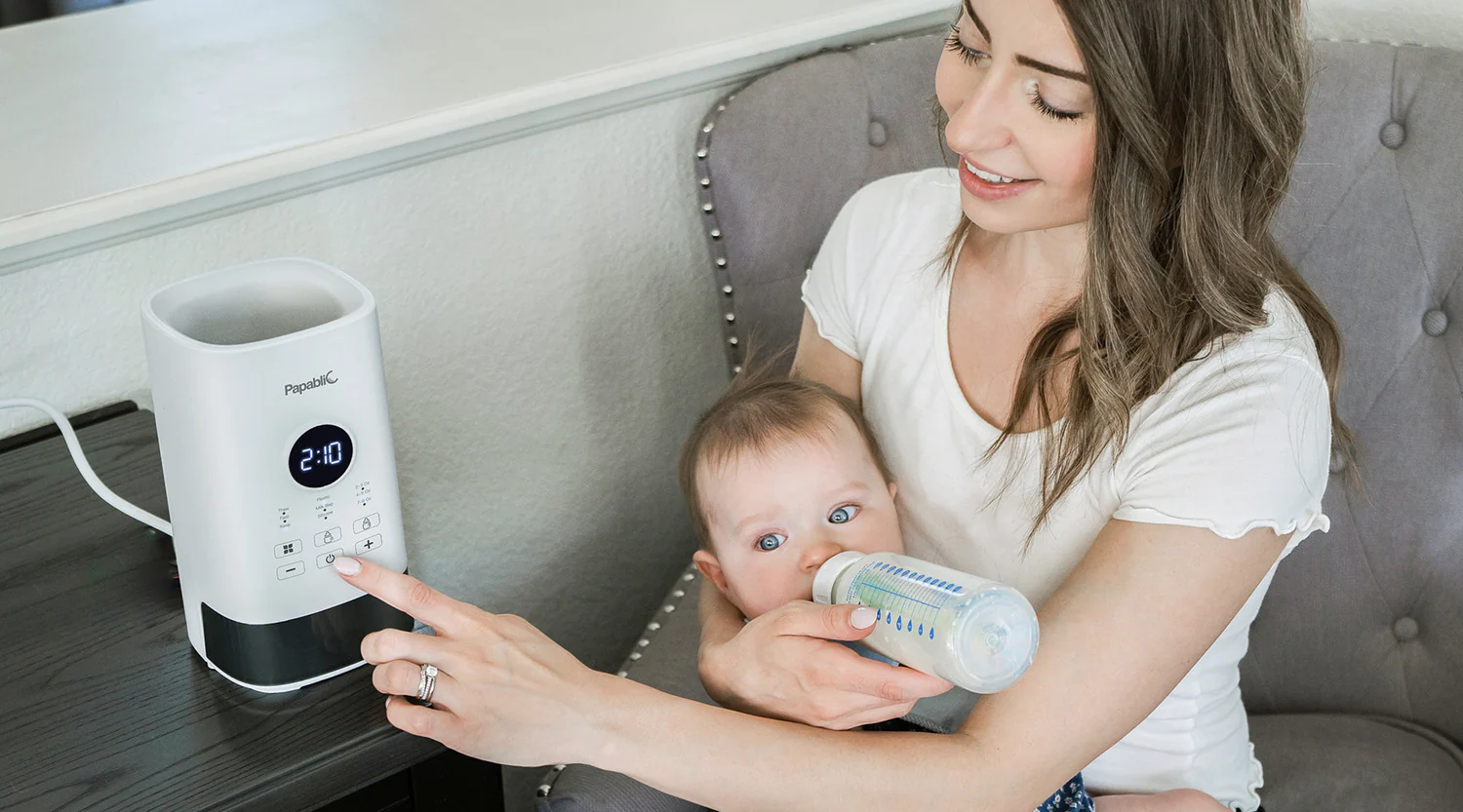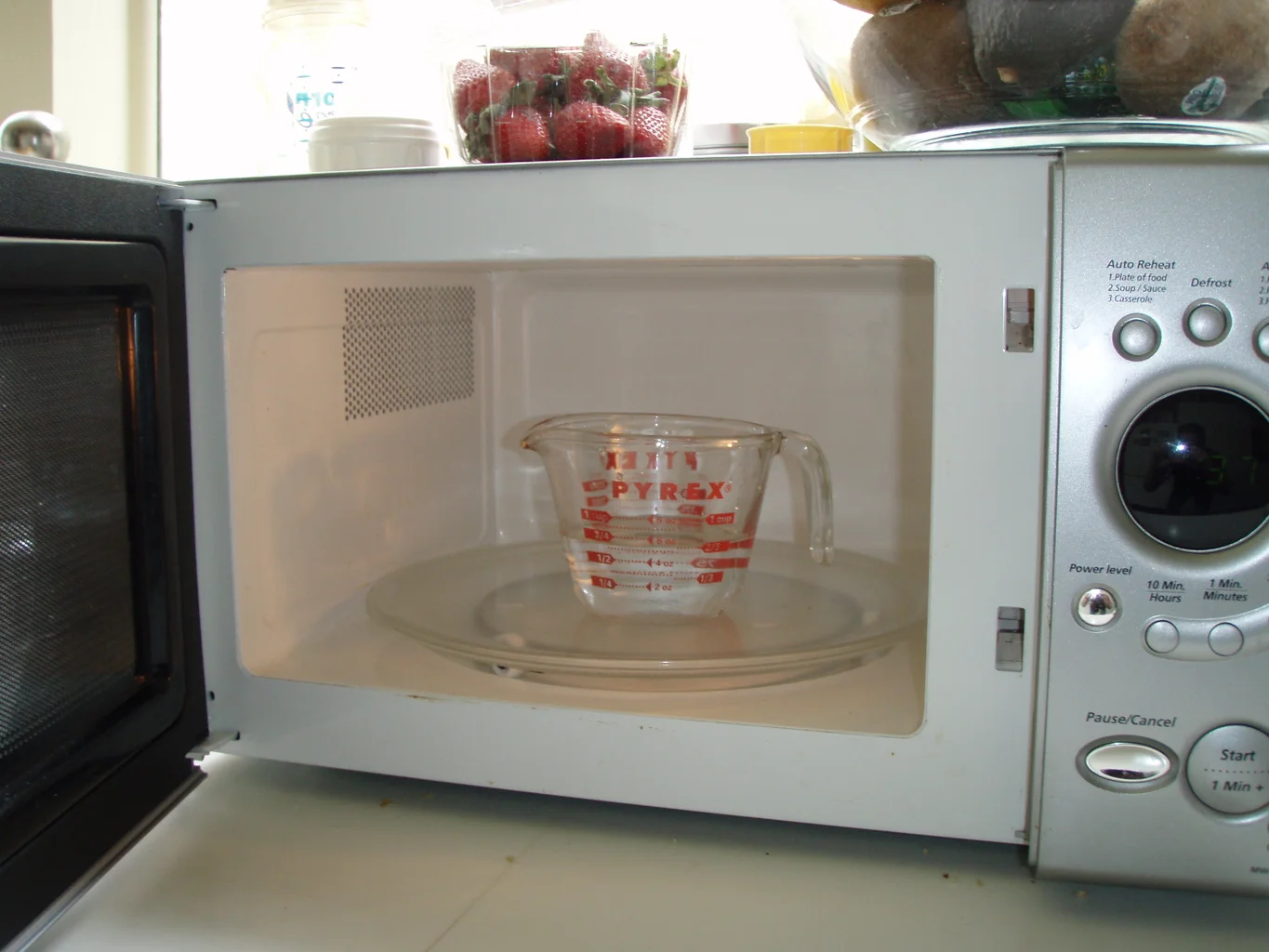Can You Reheat Baby Formula? A Guide to Safety
Preparing baby formula takes time and effort, leading some parents to wonder if it’s possible to reheat unused portions for the next feeding. For the absolute safety of your baby, the answer is a resounding no. This article delves into the reasons why reheating baby formula is unsafe and offers guidance on proper handling practices.
Why Reheating Is Not Recommended: The Bacterial Growth Risk
Reheating baby formula can be tempting, especially if you’re preparing several bottles at once. However, due to the high risk of bacterial growth, this practice is strongly discouraged and potentially hazardous for your baby’s health. Here’s a deeper exploration of why reheating formula is not recommended:
1. Ideal Environment for Bacteria:
-
Warmth is Key: Bacteria thrive in warm environments. When formula is warmed, exceeding room temperature, it creates the perfect breeding ground for harmful bacteria like Salmonella, E. coli, and Cronobacter.
-
Multiplication Acceleration: These bacteria can multiply rapidly, even during the cooling process. Reheating the formula further increases the opportunity for bacteria to grow, creating even higher concentrations.
-
Time Matters: The longer formula is at a warm temperature, the faster bacteria multiply. Even short periods of reheating and then cooling can significantly increase the bacterial load.
2. Vulnerable Infants:
-
Immature Immune System: Compared to adults, babies have weaker, still-developing immune systems. This makes them more susceptible to infections and illnesses caused by foodborne bacteria.
-
Serious Consequences: Even small amounts of contaminated formula can pose significant health risks for infants, potentially leading to severe complications.
Types of Bacteria and Potential Consequences:
-
Salmonella: Symptoms include fever, vomiting, diarrhea, and abdominal cramps, causing significant discomfort and dehydration in infants.
-
E. coli: This can cause similar symptoms to Salmonella but can also lead to more severe complications, including kidney failure.
-
Cronobacter: This bacteria can cause severe meningitis (inflammation of the lining of the brain and spinal cord) and bloodstream infections, especially in newborns.
Consequences of Consuming Reheated Formula
While the potential for bacterial growth is a key reason why reheating formula is not recommended, the consequences of consuming formula contaminated with harmful bacteria can be severe. Here’s a deeper look at the potential health risks your baby might face:
1. Foodborne Illness:
-
Common Symptoms: Consuming reheated formula with bacterial contamination can lead to various foodborne illness symptoms, including vomiting, diarrhea, fever, and abdominal cramps. These symptoms can be especially distressing for a baby, causing discomfort, dehydration, and difficulty feeding.
-
Dehydration Risks: Frequent vomiting and diarrhea can quickly lead to dehydration in infants. This can become a serious concern, requiring medical intervention in severe cases. Dehydration can manifest as dry mouth, sunken eyes, lethargy, and fewer wet diapers.
-
Impact on Feeding Habits: The discomfort associated with foodborne illness can make babies reluctant to feed, potentially leading to nutritional deficiencies and weight loss.
2. Severe Infections:
-
Beyond Common Illnesses: In some cases, consuming formula contaminated with specific bacteria like Cronobacter or certain strains of E. coli can lead to more severe infections.
-
Meningitis and Sepsis: Cronobacter can cause meningitis, inflammation of the membranes surrounding the brain and spinal cord, posing a significant health risk for newborns.
-
Bloodstream Infections: Both E. coli and Cronobacter can potentially lead to bloodstream infections, requiring immediate medical attention.
-
Long-Term Complications: Untreated or severe infections can have long-term health consequences on development and organ function.
3. Increased Susceptibility:
-
Immature Immune System: As mentioned previously, infants have weaker immune systems compared to adults, making them more susceptible to complications from foodborne illnesses.
-
Vulnerability to Long-Term Effects: Even seemingly mild illnesses can have lasting effects on babies, impacting their immune system development and increasing their susceptibility to future infections.
Proper Formula Handling: Ensuring Your Baby’s Safety
-
Prepare What You Need: It’s better to underestimate and prepare slightly less formula than to waste and potentially reheat unusable portions.
-
Discard After Feeding: Once a feeding session begins, any remaining formula in the bottle should be discarded within one hour. Bacteria from your baby’s mouth can mix with the formula, creating contamination risks.
-
Proper Refrigeration: Prepared formula can be safely stored in the refrigerator for up to 24 hours. Dispose of any unused prepared formula after this period.
-
Warm Under Running Water: Instead of reheating, gently warm a chilled bottle of prepared formula by placing it under warm, running water or using a dedicated bottle warmer.
Frequently Asked Questions
-
Can I Reheat Unused Formula That Wasn’t Fed From? Even if your baby never touched the bottle, previously warmed formula shouldn’t be reheated due to the potential for bacterial growth.
-
What About Ready-to-Feed Formulas? Open containers of ready-to-feed formula should also not be reheated. They can be stored in the refrigerator for 24 hours after opening.
-
Does It Matter What Kind of Formula? No distinction exists – whether powder, liquid concentrate, or ready-to-feed, reheating poses risks for all formula types.
Formula Preparation Tips: Minimizing Waste and Maximizing Safety
1. Start Small, Increase Gradually:
- Newborns: Begin by preparing smaller portions of formula, especially for newborns. Their stomach capacity is limited, and overpreparing can lead to wasted formula.
- Gradual Increases: As your baby grows and their appetite increases, gradually adjust the amount of formula prepared in each feeding session.
2. Observe Feeding Cues:
- Pay Attention: Learn your baby’s hunger cues and satiety signals to avoid preparing more formula than needed. Look for signs like rooting (turning head towards your chest), sucking on hands, and becoming fussy.
- Stop When Full: Once your baby shows signs of contentment and fullness, such as turning away from the bottle or pushing it away, stop feeding.
3. Utilize Storage Guidelines:
- Prepared Formula: Remember, once formula is mixed with water, it can only be stored in the refrigerator for a maximum of 24 hours. After this timeframe, discard any remaining formula.
- Powdered Formula: Store unopened containers of powdered formula in a cool, dry place following the manufacturer’s instructions. Opened containers can typically be stored for up to one month after opening.
4. Leftover Formula:
- One-Hour Rule: Discard any leftover formula in the bottle within one hour after feeding, even if untouched, to prevent bacterial growth.
5. Invest in Measuring Tools:
- Measuring Spoons: Using accurate measuring spoons ensures you prepare the correct amount of formula each time, minimizing waste.
- Formula Dispensers: Consider using formula dispensers to pre-measure portions of powdered formula, making preparation faster and more efficient.
6. Consider Ready-to-Feed Options:
- Convenience Trade-off: While ready-to-feed formula offers convenience, it can be more expensive than purchasing powdered formula.
- Minimize Waste: However, if waste minimization is a major concern, ready-to-feed options can be considered for travel or situations where precise measurement might be challenging.
Conclusion:
Reheating baby formula, while tempting for convenience, is never a safe practice. Prioritizing safe handling guidelines ensures your baby receives the safest and most nutritious form of formula possible. If you have any concerns about formula preparation, handling, or your baby’s feeding habits, always talk to your pediatrician for personalized advice they can provide.
